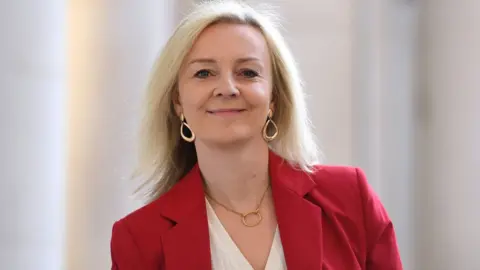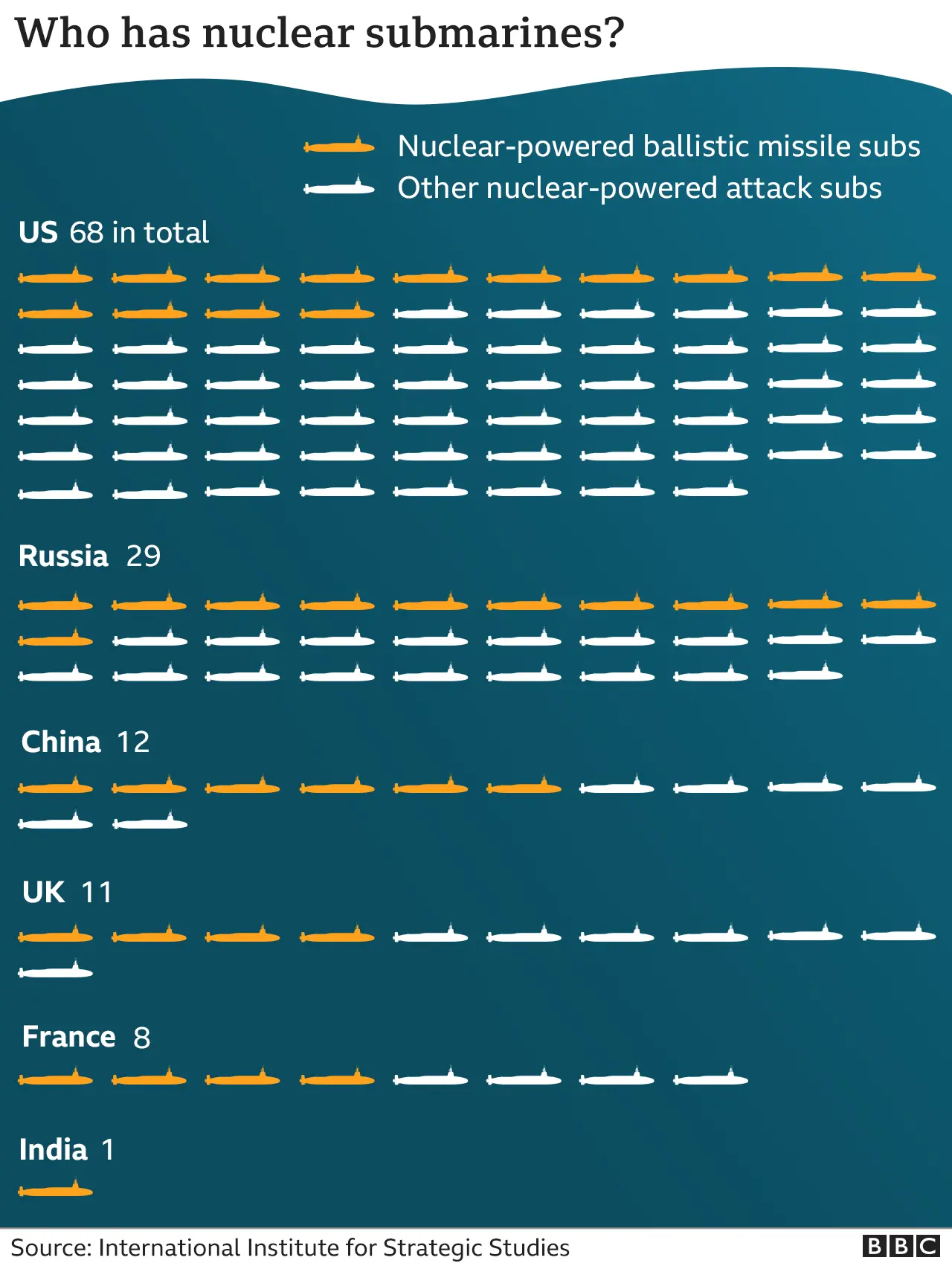Aukus: France pulls out of UK defence talks amid row
France's defence minister has cancelled talks with her UK counterpart as the row continues over a new security deal between Britain, the US and Australia.
Paris is angry after Australia signed the Aukus pact to build nuclear-powered submarines, pulling out of a major contract with France in the process.
UK PM Boris Johnson said France had nothing to worry about from the deal.
But Florence Parly's meeting with UK Defence Secretary Ben Wallace in London this week has been called off.
Speaking in the House of Commons, Mr Wallace said there had been "absolutely no intent.... to slight, upset or drive a wedge between us and France".
"Britain and France on many issues are joined at the hip," he added.
Lord Ricketts, a former British ambassador to France who was due to co-chair the two days of talks, confirmed the meeting between Mr Wallace and Ms Parly had been "postponed to a later date".
'Very friendly relationship'
Earlier, Foreign Office minister James Cleverly told BBC Breakfast that "all bilateral relationships go through periods of tension", but added: "I have absolutely no doubt that ultimately our relationship with France will endure."
He said the pact with Australia and the US was intended to "strengthen and deepen" the relationship with two long-standing defence partners and to support high-tech manufacturing and technology companies across the UK.
The Aukus agreement brokered last week, widely seen as an effort to counter China's influence in the contested South China Sea, ended a deal worth $37bn (£27bn) signed by Australia in 2016 for France to build 12 conventional submarines.
French foreign minister Jean-Yves Le Drian has described it as a "stab in the back" that constitutes "unacceptable behaviour between allies and partners".
And in a rare step among allies, French President Emmanuel Macron ordered the recall of the French ambassadors to Washington and Canberra.
The European Union has said it was "analysing" the impact of the Aukus agreement on its trade negotiations with Australia, which are due to resume in October.
BBC Brussels correspondent Jessica Parker said it appeared the EU had hardened up its position over the weekend, as the extent of France's anger became clear.
She said the European Commission wouldn't elaborate on what "analysing" the impact of Aukus could actually mean for the trade talks with Australia - but the language might lead to speculation that negotiations could even be suspended.
Speaking at the UN General Assembly in New York, where he is taking part in the UN General Assembly, Mr Johnson said the UK and France had a "very important and indestructible relationship".
"Of course we'll be talking to all our friends about how to make the Aukus pact work so that it's not exclusionary, it's not divisive - and it really doesn't have to be that way," he told reporters.
"This is just a way of the UK, the US and Australia sharing certain technologies because that is the sensible thing to do in the world in which we find ourselves.
"But that does not in any way mean that we wish to be adversarial to anybody else, or exclusive, or crowding anybody else out."
Mr Johnson is being joined on the trip with new Foreign Secretary Liz Truss, who launched her own defence of the agreement in an article for the Sunday Telegraph.
Ms Truss said the deal showed the UK's readiness to be "hard-headed" in defending its interests and had the potential to create hundreds of new skilled jobs.
 PA Media
PA MediaMeanwhile, Australia has defended scrapping its deal with France in favour of the Aukus pact.
Prime Minister Scott Morrison rejected accusations that Australia had lied, saying France should have been aware it was prepared to break the deal.
Speaking on Sunday, Mr Morrison said: "Ultimately, this was a decision about whether the submarines that were being built, at great cost to the Australian taxpayer, were going to be able to do a job that we needed it to do when they went into service and our strategic judgement based on the best possible of intelligence and defence advice was that it would not."
The agreement means Australia will become just the seventh nation in the world to operate nuclear-powered submarines.
The pact will also see the allies share cyber capabilities, artificial intelligence and other undersea technologies.
But it has been criticised by China, which has accused the three powers of having a "Cold War mentality".
And on Monday, North Korea, which has its own closely-watched nuclear weapon and missile programmes, warned it could spark a "nuclear arms race".
"These are extremely undesirable and dangerous acts which will upset the strategic balance in the Asia-Pacific region," state media KCNA quoted a foreign ministry official as saying.



- FROM RAGS TO RICHES: The incredible and eventful life of one of the first actresses in comedy
- HOW TO EAT WELL AT UNI: BBC Food's top tips for planning, shopping and keeping things tasty

